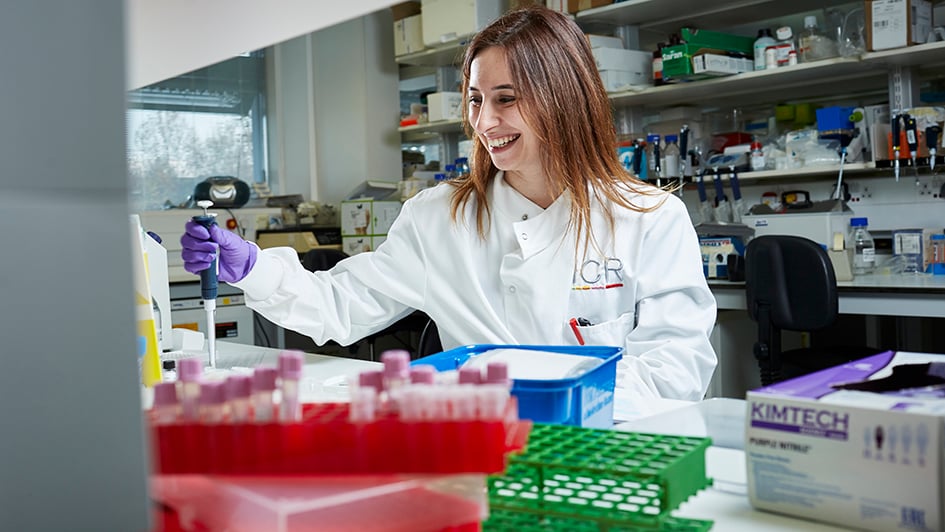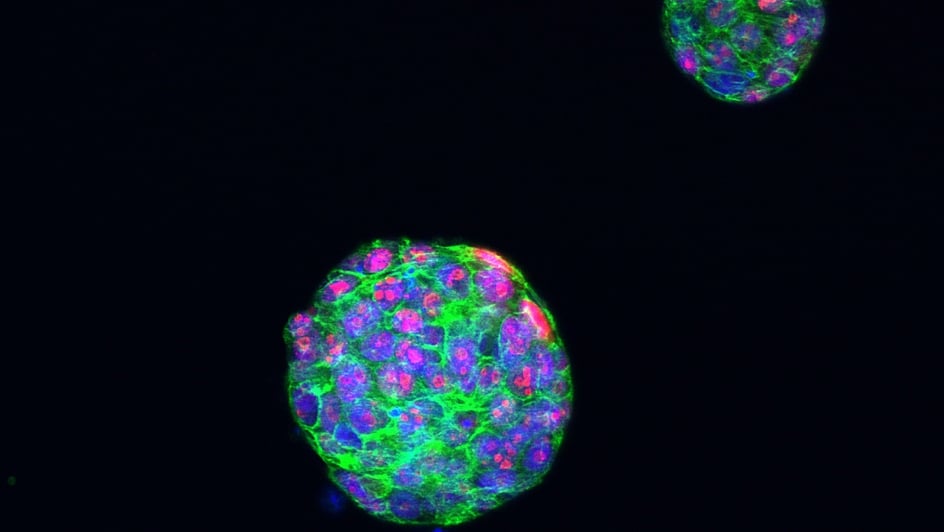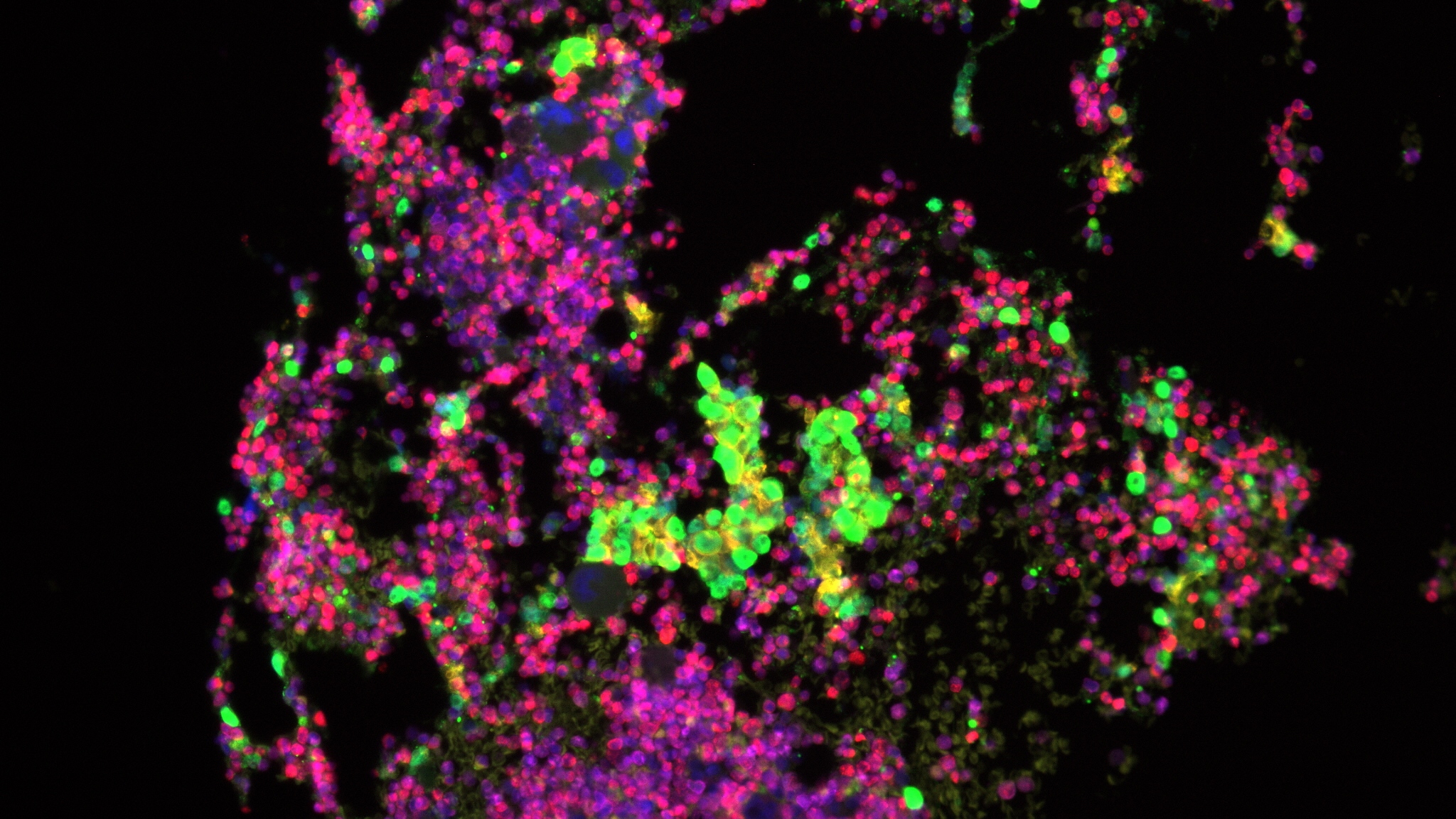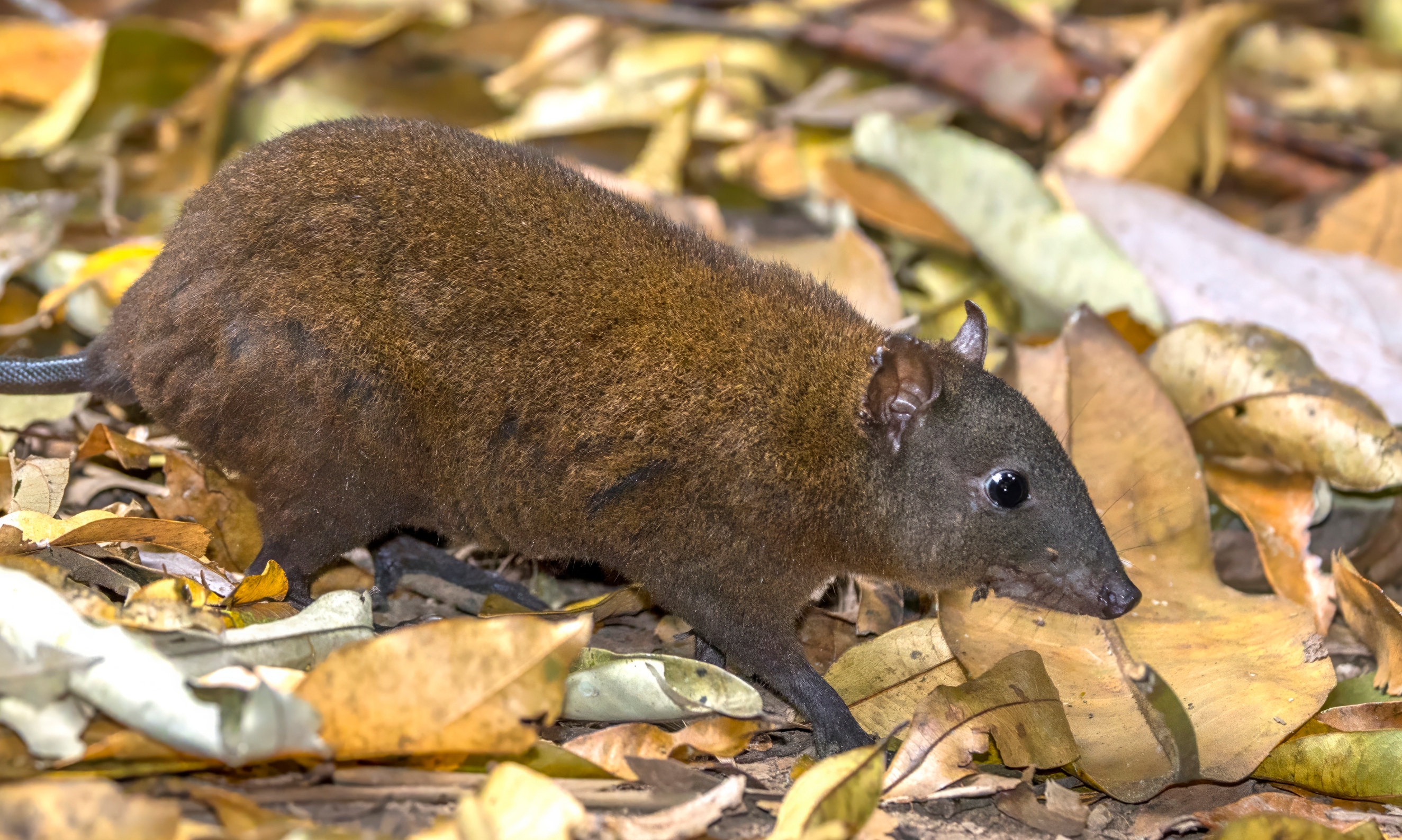Our research excellence
The Institute of Cancer Research, London, is the second-ranked academic research centre in the UK - according to the Times Higher Education league table of university research quality and impact compiled from the Research Excellence Framework (REF 2021) - and first for biological sciences.

We were also the third-ranked higher education institution in the UK for the impact of our research on society – thanks to our strategy of combining world-class basic cancer research with a determination to take discoveries to patients.
The REF assessed all higher education institutions (HEIs) in the UK which were eligible for public research funding. Our submission included world-class research studies on the development of PARP inhibitor drugs, the discovery and development of AKT inhibitor drugs, and the improvement of radiotherapy treatment for breast cancer and prostate cancer patients.
World-leading research and knowledge exchange
Some 99 per cent of the ICR’s biological science and 97 per cent of its clinical medicine submissions were ranked as ‘world-leading’ or ‘internationally excellent’ in REF 2021. It also made submissions describing its impact on the lives of people with cancer and its research environment, both of which gained outstanding scores in REF 2021.
We also scored very highly in the Knowledge Exchange Framework, or 'the KEF', in 2021. A sister evaluation to the REF, KEF 2021 was a measure of universities' partnerships and influence on wider society.
In KEF 2021, the ICR was one of only five HEIs to score top in four elements of evaluation - including working with business - and no other HEI scored higher.
Research recognition
Our ranking is a powerful endorsement of the quality of the ICR’s research, and the success of our partnership with The Royal Marsden NHS Foundation Trust in translating discoveries for patients.
Professor Kristian Helin, Chief Executive of The Institute of Cancer Research, London, said:
“The results of REF 2021 are recognition for the amazing research we’ve carried out in recent years and the benefits it is having for people with cancer. Our achievements across both biological sciences and clinical medicine are an acknowledgement of our ‘end-to-end’ research strategy, running from fundamental discovery research and the study of cancer’s complexity and evolution, through to cancer therapeutics and clinical trials to test the effectiveness of new treatments.
“We’re proud that the REF panel has rated a higher proportion of our research either ‘world-leading’ or ‘internationally excellent’ than at any other higher education in the UK, and especially that our research has scored so highly for the impact it is having for society.
“It’s exciting also to gain such a high REF 2021 score for our research environment – driven by our open, collaborative culture, by the hard work of so many people and our excellent research infrastructure. I’m enormously grateful to all our researchers, students and professional services staff at the ICR, to our partners and funders, and to all our supporters, donors and patient advocates for playing such key roles in our success.”
Our REF 2021 Code of Practice
The ICR prepared a Code of Practice which outlined the ICR’s processes for the identification of staff and outputs for the REF 2021.
The Institute of Cancer Research, London, works at the leading edge of imaging and precision radiotherapy. With state-of-the-art facilities and internationally renowned researchers, we are pioneering technologies to improve the diagnosis and monitoring of cancer, and to guide new forms of precision treatment.
The ICR and our partner hospital, The Royal Marsden NHS Foundation Trust, have a long track record of practice-changing advances in radiotherapy.
We helped to pioneer image-guided radiation therapy, and a technique called intensity-modulated radiotherapy (IMRT), which shapes the radiation beam to the outline of tumours.
Now we’re going even further, with commitments under our research strategy to do the innovative physics needed to target radiation precisely, and to test out enhanced forms of precision radiotherapy in clinical trials.
The aim is to create new treatments that target tumours with pinpoint accuracy, and minimise the side-effects caused by damage to healthy tissue.
Pushing boundaries
The installation by the ICR and The Royal Marsden of one of the world’s most advanced radiotherapy machines, the MR Linac, gives us the capability to shape a radiotherapy beam to a tumour in real time, even as it moves in the body – for example, as a patient breathes.
At the same time, scientists in the ICR’s Centre for Cancer Imaging are pushing boundaries with the very latest in single and combined imaging technologies to visualise tumours precisely, and study their behaviour, physiology and growth.
Our molecular imaging capabilities are a vital tool in preclinical drug discovery and development. By using imaging in animal studies we can, for example, accurately evaluate whether a cancer drug candidate is hitting its target and having the predicted effect
In future, doctors could use this information to see if tumours are responding to cancer treatments over time, and to adapt treatment accordingly – without the need for the patient to undergo multiple, uncomfortable biopsies.
Cancer’s genetic diversity, and its ability to adapt and evolve, can make it extremely difficult to treat. We are working to create new treatments that anticipate cancer’s evolution, and can overcome or prevent drug resistance. We are designing new types of targeted drugs and immunotherapies, and new combination treatments, designed to cut off the routes that tumours use to evade treatment.
In our Making the discoveries: our research strategy, we lay out how we plan to combat the clinical challenges caused by cancer evolution. At the forefront of our work in this area is our Centre for Evolution and Cancer – the first of its scale in the world – which offers a radically different way of thinking about cancer, and gives researchers new tools to explore the fundamentals of the disease.
Multidisciplinary researchers at the centre are seeking to answer three big questions in cancer medicine: Why are humans so vulnerable to cancer? What determines the unpredictable development of cancers in the body over time? And why do we so often see drug resistance?
At The Institute of Cancer Research, London, we are also bringing together our cancer evolution programme with our world-leading work in cancer drug discovery, to accelerate progress towards new treatments that can tackle the evolutionary behaviour of a patient’s cancer.
Using data science
We are using data science techniques to identify the most promising targets for new cancer drugs, exploiting our knowledge of the biology of tumours to create new forms of immunotherapy, and designing rational drug combinations and regimens aimed at slowing or blocking evolution.
At the ICR’s Tumour Profiling Unit, and the Centre for Molecular Pathology at The Royal Marsden and the ICR, we are carrying out detailed genetic analysis of tumours to help guide the selection of the best treatment for each individual patient.
And our work on liquid biopsies is helping us to monitor the progression of cancer through blood tests, so that we can adjust treatment in response to evolutionary changes.
The Institute of Cancer Research, London, has a strong track record in progressing research from bench to bedside through state-of-the art clinical trials. From first-in-human studies to large multicentre trials, we’re committed to delivering innovative, practice-changing clinical trials, particularly to assess the latest precision treatments.
Home to our early-phase trials, the ICR’s and The Royal Marsden’s joint Drug Development Unit (DDU) is one of the leading and largest phase I clinical trials centres in the world.
It brings together lab-based scientists with clinical researchers to run sophisticated phase I trials that match treatments to the precise molecular and genomic profile of patients’ tumours.
The eventual goal is fully personalised medicine, with drugs exploiting the specific weaknesses of a tumour at a particular point in time.
Later-stage clinical trials are carried out by the Clinical Trials and Statistics Unit (ICR-CTSU), which designs, conducts and analyses multicentre randomised controlled trials of cancer treatment – collaborating with trialists in the UK and overseas.
See our list of clinical trials
Next-generation treatment
Spanning breast cancer, urological cancers, head and neck cancers, and rarer cancer types, many of these trials have directly influenced routine clinical practice within the NHS and worldwide.
We’re also committed to innovation in clinical trial design for next-generation treatment regimes – such as those that adapt therapy to outpace cancer evolution, or that combine treatment approaches to block the paths to resistance.
We’re using biomarkers to select patients who are likely to benefit from a particular drug, or to monitor patients’ response, and new statistical techniques to evaluate different kinds of treatment used in combination.
And we are going even further – collaborating within the UK and globally to build the evidence base for effective treatments, and leading efforts to embed them into healthcare.
Understanding cancer, and the complex biological systems that underlie its development, is essential if we are to identify new ways of treating the disease. At The Institute of Cancer Research, London, we take a close-up look at the fundamental mechanisms at work within cells, while also employing complex data analysis and ‘systems biology’ approaches to gain an overview of the intricate webs of communication at play.
Our scientists have a proven track record in revealing the biology of cancer. We made the groundbreaking discovery of how the RAS gene – one of the most commonly activated genes in cancer – causes cells to turn malignant.
We helped identify and understand the BRAF oncogene, which is now an important drug target in malignant melanoma and other cancers.
And ICR science underpinned the development of the PARP inhibitor olaparib, which exploits a weakness in DNA repair in cells with BRCA gene mutations.
Now, guided by our research strategy, our teams continue to lead the way in researching aspects of biology implicated in the origin, growth and spread of cancer.
We have particular expertise in the mechanisms cells use to preserve the integrity of the genome. These systems ensure that healthy cells can only proceed to division if they have first faithfully replicated their DNA.
Designing new treatments
Our goal is to understand how these mechanisms go wrong in cancer, and ultimately how we can design new treatments that exploit the instability of the genome in cancer cells.
Our cancer biologists also have access to the complete range of modern facilities and techniques they need to make discoveries – including state-of-the-art microscopy, proteomics, metabolomics, advanced structural biology technologies and computational approaches.
And, crucially, fundamental findings from the ICR’s cancer biology labs feed into our world-leading programme of drug discovery, helping to pave the way for the next breakthroughs in cancer therapeutics.
We are world-renowned for our work to understand the genetic and lifestyle factors that affect cancer risk. We have uncovered more cancer predisposition genes than any other organisation, and we host some of the world’s largest epidemiological studies of the environmental and lifestyle factors that influence whether people develop cancer.
Investing heavily in new digital infrastructure
Latest ICR News

Overuse of CT scans could cause 100,000 extra cancers in US

ICR welcomes NICE recommendation of capivasertib for advanced breast cancer

Simple spit test could finally turn the tide on prostate cancer
